第147章 CHAPTER VI(1)
During the earlier months of this spring, Haworth was extremely unhealthy. The weather was damp, low fever was prevalent, and the household at the Parsonage suffered along with its neighbours.
Charlotte says, "I have felt it (the fever) in frequent thirst and infrequent appetite; Papa too, and even Martha, have complained." This depression of health produced depression of spirits, and she grew more and more to dread the proposed journey to London with Sir James and Lady Kay Shuttleworth. "I know what the effect and what the pain will be, how wretched I shall often feel, and how thin and haggard I shall get; but he who shuns suffering will never win victory. If I mean to improve, I must strive and endure. . . . Sir James has been a physician, and looks at me with a physician's eye: he saw at once that I could not stand much fatigue, nor bear the presence of many strangers.
I believe he would partly understand how soon my stock of animal spirits was brought to a low ebb; but none--not the most skilful physician--can get at more than the outside of these things: the heart knows its own bitterness, and the frame its own poverty, and the mind its own struggles. Papa is eager and restless for me to go; the idea of a refusal quite hurts him."But the sensations of illness in the family increased; the symptoms were probably aggravated, if not caused, by the immediate vicinity of the church-yard, "paved with rain-blackened tomb-stones." On April 29th she writes:--"We have had but a poor week of it at Haworth. Papa continues far from well; he is often very sickly in the morning, a symptom which I have remarked before in his aggravated attacks of bronchitis; unless he should get much better, I shall never think of leaving him to go to London. Martha has suffered from tic-douloureux, with sickness and fever, just like you. I have a bad cold, and a stubborn sore throat; in short, everybody but old Tabby is out of sorts. When ---- was here, he complained of a sudden headache, and the night after he was gone I had something similar, very bad, lasting about three hours."A fortnight later she writes:--
"I did not think Papa well enough to be left, and accordingly begged Sir James and Lady Kay Shuttleworth to return to London without me. It was arranged that we were to stay at several of their friends' and relatives' houses on the way; a week or more would have been taken up on the journey. I cannot say that Iregret having missed this ordeal; I would as lief have walked among red-hot plough-shares; but I do regret one great treat, which I shall now miss. Next Wednesday is the anniversary dinner of the Royal Literary Fund Society, held in Freemasons' Hall.
Octavian Blewitt, the secretary, offered me a ticket for the ladies' gallery. I should have seen all the great literati and artists gathered in the hall below, and heard them speak;Thackeray and Dickens are always present among the rest. This cannot now be. I don't think all London can afford another sight to me so interesting."It became requisite, however, before long, that she should go to London on business; and as Sir James Kay Shuttleworth was detained in the country by indisposition, she accepted Mrs.
Smith's invitation to stay quietly at her house, while she transacted her affairs.
In the interval between the relinquishment of the first plan and the adoption of the second, she wrote the following letter to one who was much valued among her literary friends:--"May 22nd.
"I had thought to bring the Leader and the Athenaeum myself this time, and not to have to send them by post, but it turns out otherwise; my journey to London is again postponed, and this time indefinitely. Sir James Kay Shuttleworth's state of health is the cause-a cause, I fear, not likely to be soon removed. . . . Once more, then, I settle myself down in the quietude of Haworth Parsonage, with books for my household companions, and an occasional letter for a visitor; a mute society, but neither quarrelsome, nor vulgarising, nor unimproving.
"One of the pleasures I had promised myself consisted in asking you several questions about the Leader, which is really, in its way, an interesting paper. I wanted, amongst other things, to ask you the real names of some of the contributors, and also what Lewes writes besides his Apprenticeship of Life. I always think the article headed 'Literature' is his. Some of the communications in the 'Open Council' department are odd productions; but it seems to me very fair and right to admit them. Is not the system of the paper altogether a novel one? I do not remember seeing anything precisely like it before.